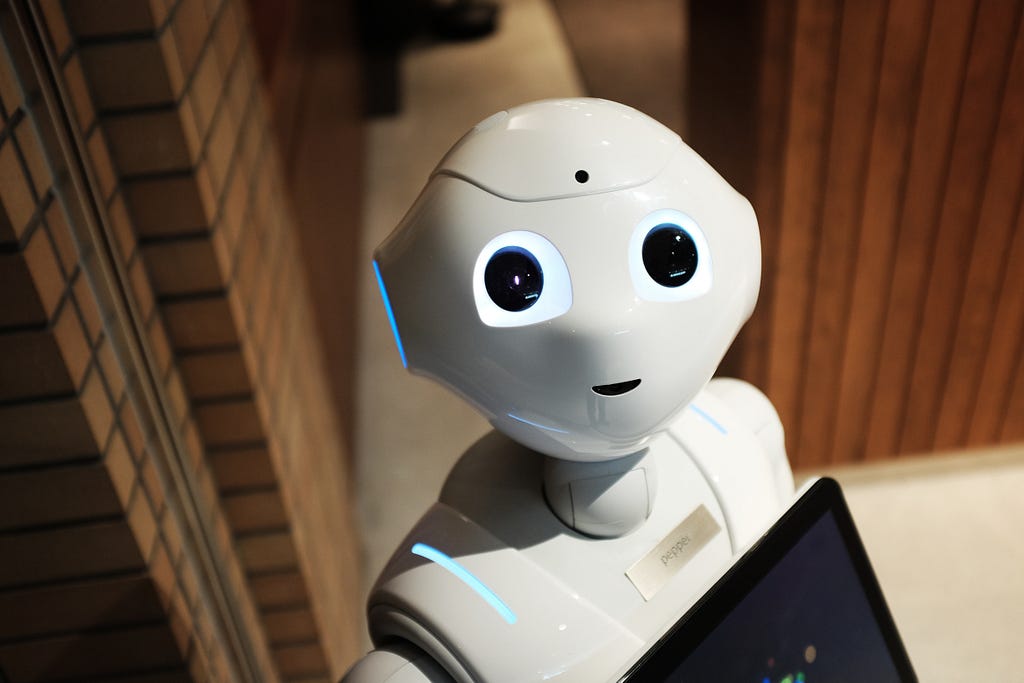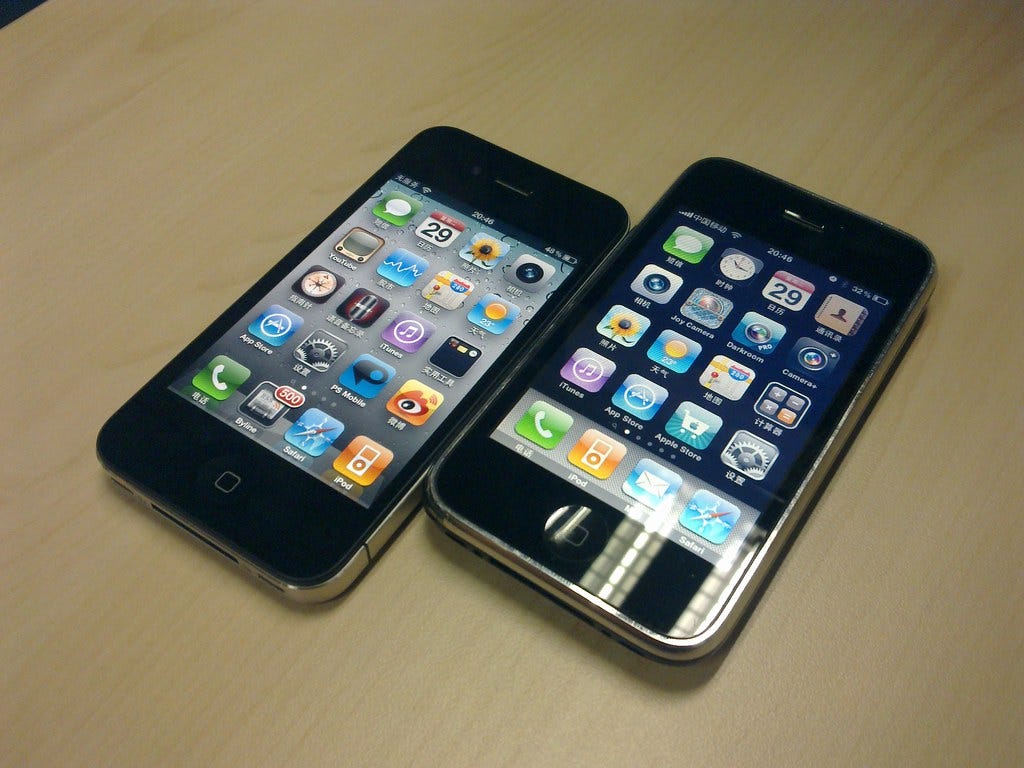Latest news about Bitcoin and all cryptocurrencies. Your daily crypto news habit.
 Photo by Alex Knight on Unsplash
Photo by Alex Knight on Unsplash
If you’re one among the people of Generation X (born sometime between the 1960s- 1980s), you might be one among those complaining about the rapid expansion of technology, and how its complexities sometimes don’t make sense.
For millennials, the present world is an interesting place to be. New tech just keeps popping out of somewhere time and time again. Their short attention spans are satiated by the presence of myriad gadgets to try, a huge set of social media apps to socialize and an adaptive capability to catch up with nuances of new & emerging tech.
But not all of us are tech nerds, and most of them include your parents, older relatives, and neighbors. For many, adapting to such a rapid pace of technology is a tiresome chore. It is hard to make them understand that the world isn’t the same as before.
The simpler technologies of old, such as the steam engines, early automobiles, and cordless dumb phones made a lot of things easier for us. But should we have stopped here? We couldn’t have done so, because technology cannot stop, at least not until our ambitions do. And we don’t want that to happen, right?
So long as we dream high, we need technology: for it makes things easier for us, gratifies our needs only for us to become hungrier and technologize another something that once used to be simpler.
So it is obvious that technology wouldn’t stop until we do. But couldn’t we at least make it simpler? Turns out, we can! And Chatbots are perhaps the closest to a solution.
The argument for making technology user-friendly
The argument for making technology usable to everyone stems from a dire need of reducing inequality across the world. More than half of the world doesn’t have access to the Internet. We can be highly optimistic that such a problem can be solved in the coming years ahead, especially considering the plans to create worldwide internet connectivity through satellite technology by companies such as Amazon and Tesla.
But while the inequality with regard to accessibility of services may be solved by vision and intellect, the same cannot be said about the inequality with regard to familiarity with technology.
It’s easier for millennials to adapt to new ways of doing stuff using technology. The same cannot be said for a part of generation X. The entire world can be connected to the internet using satellites. But having accessibility to services doesn’t imply its effective usability.
The difficulty quotient goes further high when we talk about new technologies. Some of you may know what the terms IoT and Blockchain mean, but the same cannot be said for millions who have no idea about the significance of such advancements. With time, we’ll be seeing even more groups of people having no idea about the tech they see around the world.
It’s relatively easier to bring tech to the masses than to make them literate about its purpose, significance, and functionality.
How Chatbots can make Technology user-friendly
 There was a time when these devices were a symbol of the belief “simple, yet sophisticated”. The addictive smartphones of the present, though are more like “complicated, yet addictive”
There was a time when these devices were a symbol of the belief “simple, yet sophisticated”. The addictive smartphones of the present, though are more like “complicated, yet addictive”
Chatbots, in essence, are programs that imitate human conversations and act as a medium between businesses and their customers. While its best use cases are associated with the domain of customer experience, it’s not hard to see how well they can go beyond that frame.
Take, for example, the Quartz Brief mobile app. It’s an app that delivers you the latest news on a wide variety of topics, but all of it in a conversational manner. You can use the app to consume useful information by interacting it almost the same way you’d interact with a person on a messaging app.
Google is flexing its AI muscles to bring multiple new use cases with its Google Assistant. Duplex for helping users schedule appointments automatically, playing games, accessing a large set of services from playing music to finding lyrics to a song! The evolution of chatbots is making all such things possible.
Chatbots function with the help of Neural Language Processing (NLP) by parsing input from the user in the form of text or voice, then processing it through algorithms to determine the output to a users query.
The end result is quite effective. Using chatbots, a user can solve their queries by simply asking through text or voice instead of fiddling around a huge set of web pages, links, contacts while trying to find viable solutions to their problems.
Chatbots make stuff simple, that is how they make technology user-friendly.
What if the billions of websites on the web could be simplified with an accessible chatbot interface?
What if we had chatbot-based apps for using products and services instead of complicated UI’s loaded with myriad pages?
Leveraging chatbot development on a large scale can open up all these possibilities. But it isn’t so simple as it seems to be. In addition to NLP, chatbots also require the support of other emerging technologies such as Machine Learning and Deep learning.
Developing such AI-based algorithms for chatbot development requires data, a lot of it. Does this require data from users? Of course, it does.
So what about Privacy?
There are two approaches to this question. One is the Google approach, wherein all your data is collected on the cloud, and you can delete it at your will. This method isn’t considered the best because you virtually have no control over how your data is used on the cloud, and whom it gets sent to in real-time.
The other approach is implemented by companies such as Apple, wherein most of the data is stored locally to be used by algorithms and software for providing AI-assisted functionalities from the likes of Siri. It’s comparatively safer than Google’s approach, but not the perfect one.
So chatbot development isn’t perfect? Right.
Sure, chatbot development isn’t simple. But at the same time, an investment in hiring chatbot developers to build chatbot-based applications would create simple-yet innovative platforms accessible and usable by everyone- from the tech nerd to an old neighbor who loathes anything related to technology.
To quote the late Steve Jobs,
“It takes a lot of hard work to make something simple, to truly understand the underlying challenges and come up with elegant solutions.”
I loved Steve Jobs’ approach to design. A headline from Apple’s first marketing brochure is still embedded in my mind when I think about it, and it read as the following:
Simplicity is the ultimate sophistication
Apple was known for its simple, yet premium and sophisticated design philosophy on its devices. But what made apple truly stand out from its competitors prior to the demise of Steve jobs was its approach to UI design. As the saying went, “It just works”.
And it should “Just work”. We’re not supposed to be transforming every individual into tech geeks. Everyone doesn’t need to have an interest in technology to leverage the benefits of it.
Chatbots are a great approach to implementing a simple design philosophy and building technology that is usable for everyone. Technology shouldn’t be about building complex devices performing complex tasks in complicated ways. It should be about complex devices performing complex tasks in “Simple” ways! Because ultimately, technology and all human progress is meant to make our lives easier. And, Chatbot developers are doing this for us.
Chatbots can make technology more accessible was originally published in Hacker Noon on Medium, where people are continuing the conversation by highlighting and responding to this story.
Disclaimer
The views and opinions expressed in this article are solely those of the authors and do not reflect the views of Bitcoin Insider. Every investment and trading move involves risk - this is especially true for cryptocurrencies given their volatility. We strongly advise our readers to conduct their own research when making a decision.
